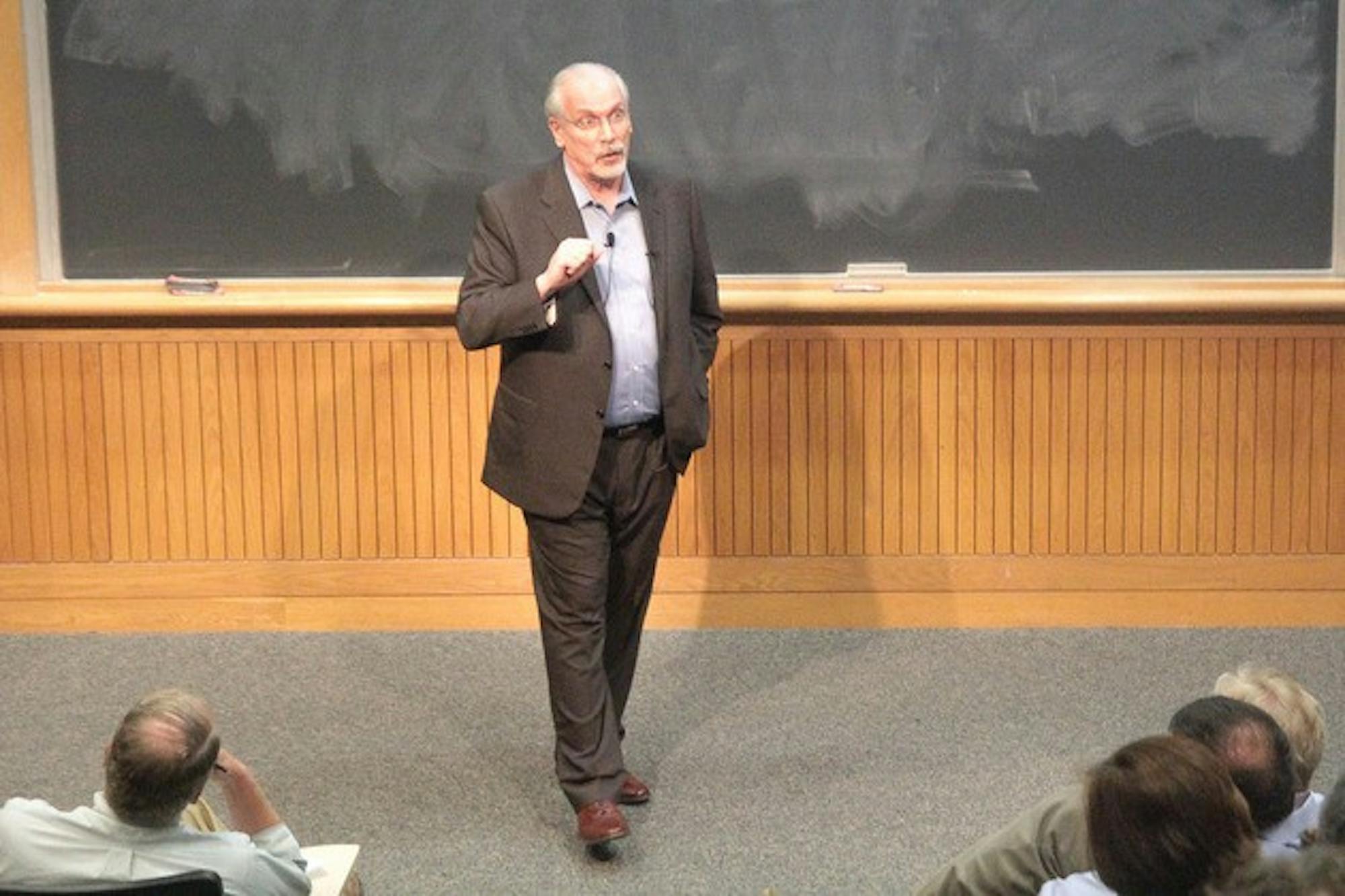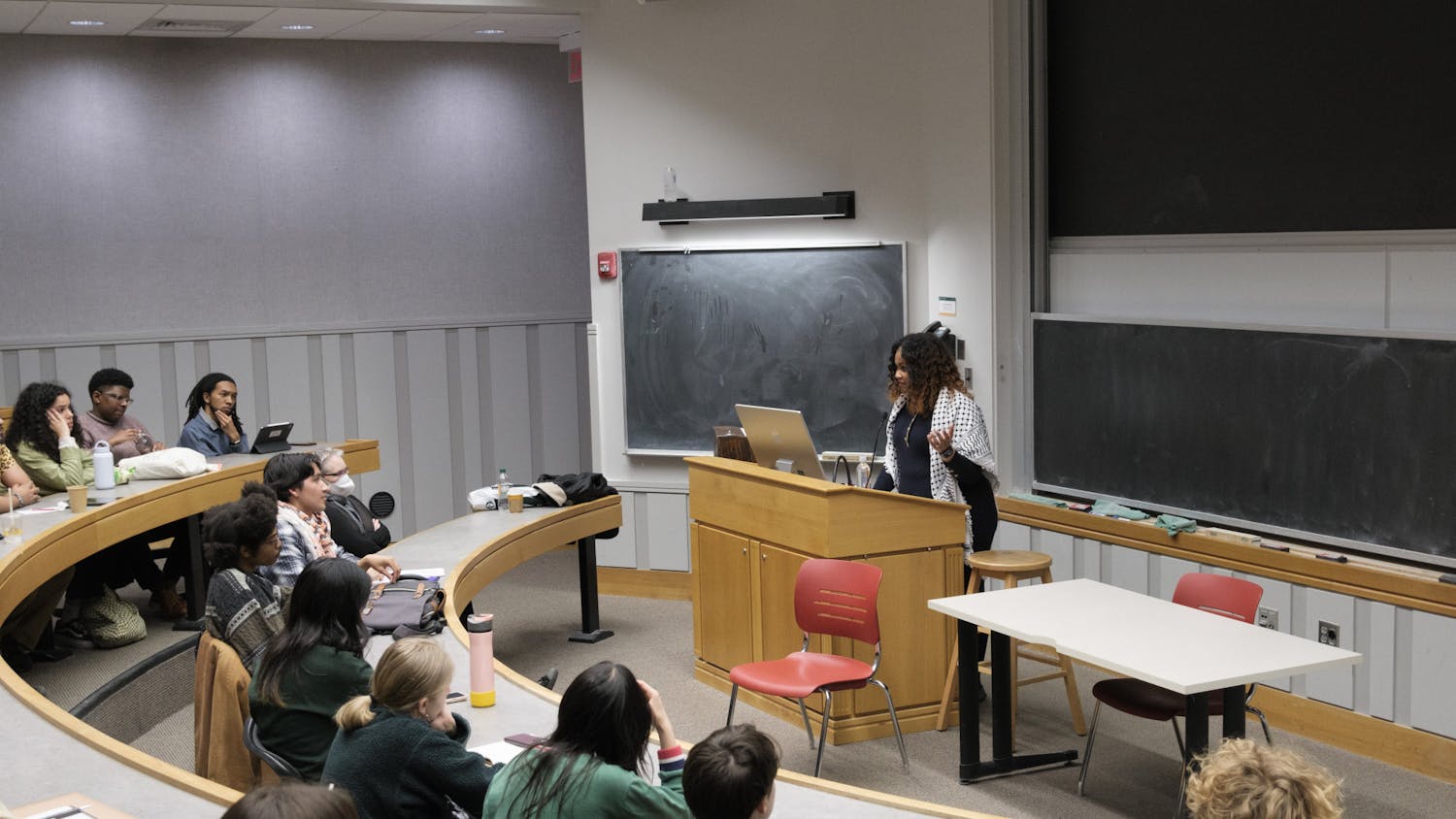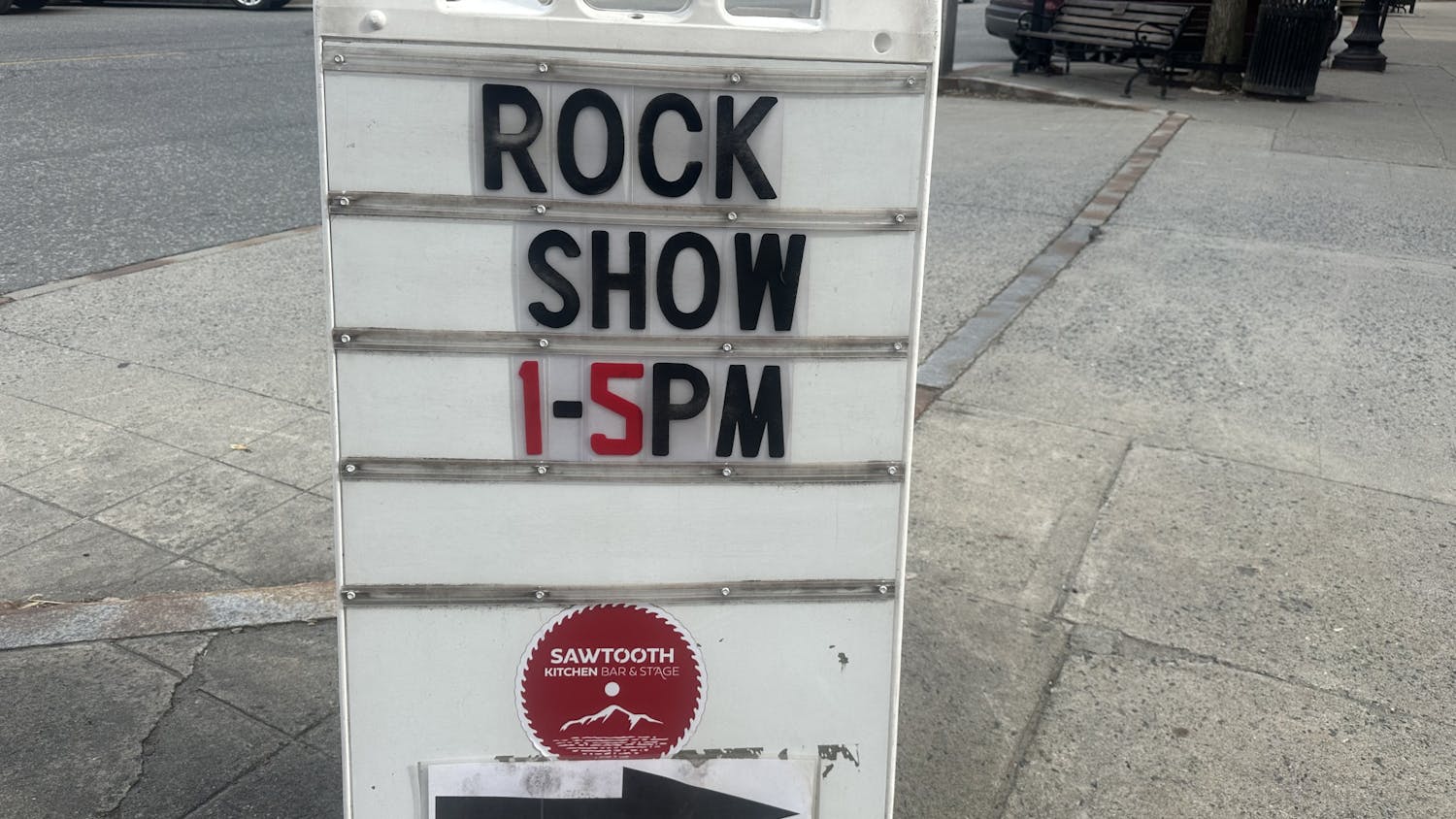DeMillo called Dartmouth an "island of excellence" in a "big ocean" of struggling public universities and non-selective private institutions. This larger educational system is unsustainable for economic, moral, social and pedagogical reasons, and with universities closing and more students seeking higher education, many may find themselves without options.
"If a quarter of them disappear, if a thousand of them disappear, it will have an impact on places like Dartmouth, because someone has to absorb those students," he said. "I hate to start out on a bummer, but that's kind of where we are."
DeMillo argued that recent strides in technology have the potential to be used as a tool that can enact positive changes.
"Technology, to me, removes a bunch of restrictions," he said. "It removes a bunch of you can'ts' from the way that we teach and the way that we learn."
DeMillo reviewed an older study showing that, despite their long history, traditional lecture classes are among the least effective education methods. Lectures are poorly suited to the way the brain processes information, since they do not facilitate its conversion from short to long-term memory. Information given in small pieces and tested repeatedly, combined with individualized attention, is the best method of instruction.
"I intensely dislike the idea of a lecture," DeMillo said, eliciting laughter from the audience. "It's actually not something that's suitable to learning."
Although the current growth of online courses is controversial, DeMillo said the inadequacy of the lecture format is not new. However, institutions never acted on this "dirty little secret" because of the high costs associated with changing educational methods.
Today, technology presents a lower-cost solution. Massive open online courses, or MOOCs, are a prime example of the ways in which technology can improve classroom learning.
Georgia Tech, where DeMillo is a professor, has offered 20 courses from leading MOOC provider Coursera to over 375,000 students. The university has not yet received data from Coursera students, but DeMillo said undergraduates and professors have praised the transformation in learning style.
The university is often criticized for professors' apathy toward undergraduates, and the introduction of MOOCs created a heated debate among faculty. Other universities and the federal government have joined the conversation, as the Department of Education recently announced that these courses will be eligible for accreditation.
"I know accreditation is probably the last thing you want to think about late on a Tuesday afternoon, but it's the most exciting thing happening in higher education," he said.
Despite the changing models of education, professors are often given a "false choice," DeMillo said. Residential college education and online learning are not mutually exclusive and may be best when combined.
Universities that resist the prevailing social, economic and political forces may be threatened. He compared them to now-defunct local newspapers that dismissed the importance of the Internet.
"That's our fate and when we ignore that, we ignore it at our peril," he said.
Commenting on his recent book, "Abelard to Apple: The Fate of American Colleges and Universities," DeMillo said that medieval philosopher Peter Abelard and new technologies from Apple or Coursera both operate independent of institutions.
While Abelard attracted thousands of students through his reputation and "good looks," online education providers are able to entice many times that number by providing an innovative and economically viable method of education.
DeMillo praised Dartmouth's strategic planning process, which he said will enable it to evaluate the current global experiments in education and determine its own position.
"I would like to see a place like Dartmouth participate in that, and I know that your strategic planning is making you focus on the role of undergraduate education and what it means in the future," he said. "You'll be part of that discussion."
Max Liu '14 said DeMillo's speech prompted him to examine the assessments and grades he receives in class. Traditional learning formats are often believed to be better, but this may not be the case.
"It relates a lot to what I've been thinking about at Dartmouth," Liu said. "We tend to believe there's intrinsic value to our education, but just from personal experience, what we offer isn't that different from other schools."
DeMillo spoke as part of the "Leading Voices in Higher Education" lecture series, which will conclude next week.




